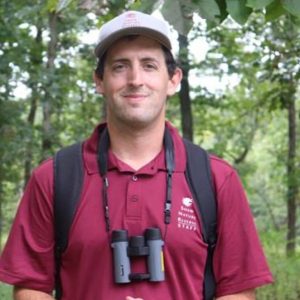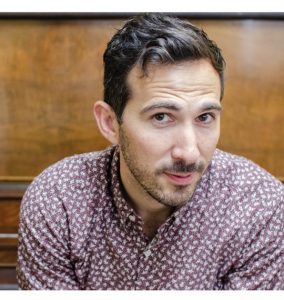2020 Keynote Speakers
All the keynote sessions for the LDC 2020 Virtual Conference were recorded. Look below to find links to watch now!
Thursday, October 22, 2020, 11:00 AM EDT
Ecology Education Goes 4D
Dr. Ken Klemow, Wilkes University
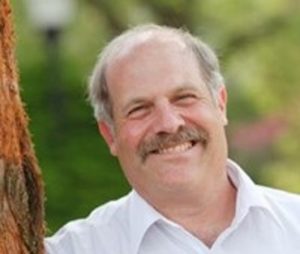 Dr. Ken Klemow is a botanist and ecologist with expertise in ecology education and the environmental impacts of energy development. He serves as Professor and Chair of Biology and Health Sciences at Wilkes University in Wilkes-Barre, PA, where he teaches courses in Biology, Botany, and Energy. For the past thirty years, Ken has been active at the national level on education issues, where he currently serves on a committee to develop and oversee the implementation of the Ecological Society of America’s Four-Dimensional Ecology Education (4DEE).
Dr. Ken Klemow is a botanist and ecologist with expertise in ecology education and the environmental impacts of energy development. He serves as Professor and Chair of Biology and Health Sciences at Wilkes University in Wilkes-Barre, PA, where he teaches courses in Biology, Botany, and Energy. For the past thirty years, Ken has been active at the national level on education issues, where he currently serves on a committee to develop and oversee the implementation of the Ecological Society of America’s Four-Dimensional Ecology Education (4DEE).
Dr. Luanna Prevost, University of South Florida
 Dr. Luanna Prevost is an associate professor in the Department of Integrative Biology at the University of South Florida. She obtained her Ph.D. in Plant Biology from the University of Georgia and completed a postdoctoral research assistantship in Science Education at Michigan State University. Her research focuses on the assessment of student learning, professional development, and institutional change. Dr. Prevost is also interested in how professional development program design can be used to support students in STEM, particularly those from traditionally underserved populations. She is also Director of the Amgen Biotechnology Experience -Tampa which provides hands-on learning for high school students and professional development for teachers.
Dr. Luanna Prevost is an associate professor in the Department of Integrative Biology at the University of South Florida. She obtained her Ph.D. in Plant Biology from the University of Georgia and completed a postdoctoral research assistantship in Science Education at Michigan State University. Her research focuses on the assessment of student learning, professional development, and institutional change. Dr. Prevost is also interested in how professional development program design can be used to support students in STEM, particularly those from traditionally underserved populations. She is also Director of the Amgen Biotechnology Experience -Tampa which provides hands-on learning for high school students and professional development for teachers.
Friday, October 23, 2020, 11:00 AM EDT
Reclaiming the ‘Intro’ in Introductory Biology
Dr. Bryan Dewsbury, University of Rhode Island
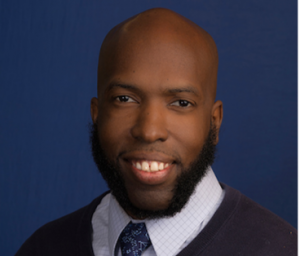 Dr. Bryan Dewsbury is an Associate Professor of Biology and Principal Investigator of the Science Education And Society (SEAS) research program where his team studies the social context of teaching-learning in formal and informal settings. He conducts professional development for faculty and staff on inclusive practices in higher education and has worked with over 50 institutions of higher education across North America. He is also a Fellow of the John N. Gardner Institute where he supports institutions in the transformation of their campuses toward equity.
Dr. Bryan Dewsbury is an Associate Professor of Biology and Principal Investigator of the Science Education And Society (SEAS) research program where his team studies the social context of teaching-learning in formal and informal settings. He conducts professional development for faculty and staff on inclusive practices in higher education and has worked with over 50 institutions of higher education across North America. He is also a Fellow of the John N. Gardner Institute where he supports institutions in the transformation of their campuses toward equity.
Saturday, October 24, 2020, 11:00 AM EDT
Online Teaching and Learning – Undergraduates and High School
Dr. Concepción Rodríguez-Fourquet, University of Puerto Rico in Bayamon
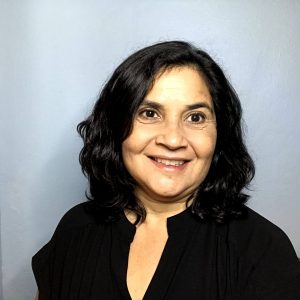 Dr. Concepción Rodríguez-Fourquet aka “Conchi” started her career as a professor in 2004 right after finishing my Ph.D. in Biology from the University of Puerto Rico in Rio Piedras. She has been involved in many projects with undergraduate students with the objective of promoting research, mostly in ecology. Early on she became the mentor of a student organization called LIFE (Leading Initiatives for the Future Ecologist) for which she is still involved with today. Since 2008 she has been the BioBlitz organizer on campus. The BioBlitz is held annually on campus, most of the time lasting 24 hours. Currently, she is collaborating with an NGO working on the protection and conservation of land crab populations in a nature reserve. She is also part of a CREST program that promotes environmental neuroscience and looks at the effects of contaminants on the behavior of several species of invertebrates.
Dr. Concepción Rodríguez-Fourquet aka “Conchi” started her career as a professor in 2004 right after finishing my Ph.D. in Biology from the University of Puerto Rico in Rio Piedras. She has been involved in many projects with undergraduate students with the objective of promoting research, mostly in ecology. Early on she became the mentor of a student organization called LIFE (Leading Initiatives for the Future Ecologist) for which she is still involved with today. Since 2008 she has been the BioBlitz organizer on campus. The BioBlitz is held annually on campus, most of the time lasting 24 hours. Currently, she is collaborating with an NGO working on the protection and conservation of land crab populations in a nature reserve. She is also part of a CREST program that promotes environmental neuroscience and looks at the effects of contaminants on the behavior of several species of invertebrates.
Andy Klingensmith, Shaw Institute for Field Training
Andy Klingensmith is the Coordinator of Experiential Learning Programs at Shaw Nature Reserve. He has a Bachelors’s degree from the University of Idaho and has been a professional in the field of Environmental/Outdoor/Experiential Education for the past 15 years. At SNR he coordinates the Shaw Institue for Field Training (SIFT) program which aims to engage high school students from a diversity of backgrounds in the fields of environmental research and restoration. Through SIFT, students receive hands-on field skills training with real-world application of their training through partnerships with Washington University (in St. Louis) researchers and professors. His other duties at SNR include designing and facilitating school programs, creating and delivering interpretation programs, and producing virtual media.
Jordan Gonzalez, Boyle Heights High School
Gonzalez has been teaching in Los Angeles schools for over a decade. His background is in humanities and urban education. After graduate school, he started teaching in South Los Angeles and found it imperative to connect the classroom to real life, and began forming partnerships with community organizations to make learning more relevant. In 2014, he collaborated with the Los Angeles Neighborhood Landtrust to design, develop, and implement an interdisciplinary unit combining reading, writing, and gardening. Students explored the basics of soil management, crop, and food production, green space, and access to healthy food. Since that early partnership, he has become a science teacher and has continued to build on community partnerships, including Friends of the LA River and Planting Science.org, and it is an ongoing goal to bring in scientists to create meaningful learning experiences and expose students to the various STEM fields.
Dr. Ken Klemow, Wilkes University
Ecology Education Goes 4-Dimensional
It took 30 years. But after considerable thought, discussion, and a slew of published articles, ecology educators now have a framework for teaching ecology. Endorsed by the ESA’s Governing Board in November 2018, the Four-Dimensional Ecology Education (4DEE) framework is official. But what is 4DEE? How can it be implemented? In short, the framework asks ecology educators to address and integrate four perspectives when teaching ecology: ecology concepts, ecology practices, human-environment interactions, and cross-cutting themes. This presentation will more fully discuss those dimensions, and suggest strategies for implementing them in your ecology courses.
Luanna Prevost, University of South Florida
Taking steps towards multidimensional learning with 4DEE
The 4DEE framework builds on a national movement for multidimensional instruction and assessment across K-12 and undergraduate STEM education. While many ecology and organismal biology courses address the 4DEE components separately, intentional integration of the components is a central feature of the 4DEE framework that promotes more authentic learning contexts for students. This talk will explore how we move from considering individual components to integrating two or more components in our objectives, activities, and assessments. We will discuss connecting the framework’s components at the lesson, course, and program level, and how we prepare students for success with multidimensional tasks.
Dr. Bryan Dewsbury, University of Rhode Island
Reclaiming the ‘intro’ in introductory biology
Biology education reform has far too long privileged content coverage over the humanistic aspects of the education process. Particularly at the introductory level, ignoring the role of dialogue and the psychology of the education process has consequences for historically marginalized identified students entering the discipline. In this address, I make the case why the ‘intro’ is the more important word in this traditional first-year course title, and identify the mechanisms that cultivate an environment where more students access and thrive in introductory biology classrooms and beyond.
Dr. Concepción Rodríguez-Fourquet, University of Puerto Rico in Bayamon
My very own BioBlitz
A virtual BioBlitz is a way to engage students during the pandemic. Students, teachers, parents, siblings, and relatives get involved in the virtual BioBlitz. They can learn about the identification of plants, animals, and fungi. They become aware of their backyard, nearest park, apartment, balcony, porch, or any place where an organism is found. Students and teachers can learn about using a biodiversity platform, how to take pictures, and how to upload them. A sense of accomplishment and belonging develops even when there is no physical contact with peers, teachers, or school.
Andy Klingensmith, Shaw Institute for Field Training
The SIFT Virtual Experience: How being thrust into virtual learning was just the kick in the pants we needed!
The Shaw Institute for Field Training (SIFT) program is an introductory field skills training program designed to engage teenagers in the scientific exploration of the natural world. Being forced into a virtual space was the catalyst needed to evolve the SIFT program in a way I’ve wanted to do for years. Utilizing the digital tools available to us, we implemented new components of the SIFT program including: a place-based learning model, a “student leader” track, SIFT networking opportunities, and more. This is my story of how we successfully transitioned a finely tuned “in-person” program to high quality, student-focused SIFT virtual experience.
Jordan Gonzalez, Boyle Heights High School
The Power of Place-based Ecology and Online Possibilities during Distance Learning
Working with at-risk youth, I find it necessary to make learning meaningful, memorable, and relevant. In Biology, especially ecology units, focusing on our local environment has hooked students beyond what I imagined. Place-based ecology empowers students to be participants in developing their reality and community, which has been driven largely by developers. The irony of distance learning is that we become more disconnected from one another and our environment, but place-based ecology in our community confronts the distancing head-on. Additionally, by focusing on possibilities, I have been able to bring memorable and robust interactions with scientists and engineers into our digital classroom to help us learn and think about the factors affecting our local environment.
